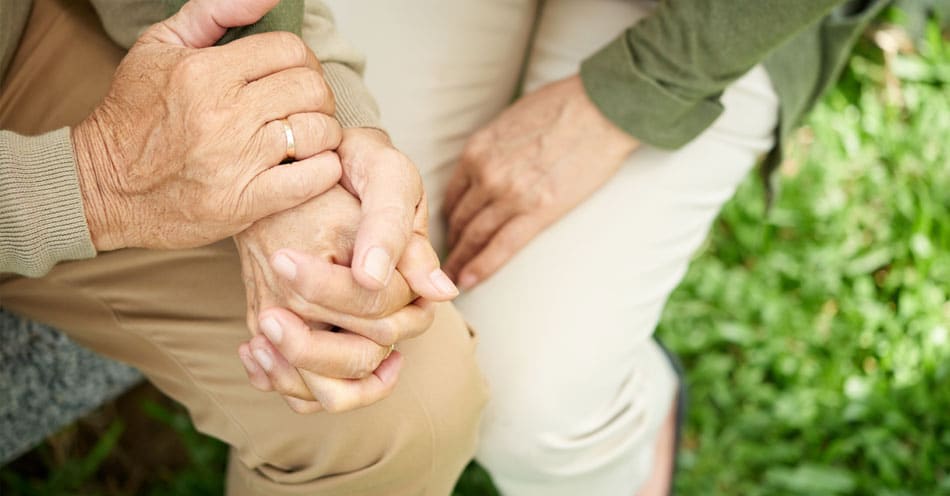Bereavement Support
Some people will be lucky enough to have a supportive network that they will feel happy speaking with. But not all of us are that fortunate. Some people prefer speaking with professionals or strangers rather than their nearest and dearest. Where this is the case several organisations can help. At NC Funeral Directors we can also put you in touch with bereavement counsellors if you feel yourself or a loved one would benefit. The organisations below offer free bereavement support for people in the Lancashire area, and nationally.
Organisations that offer bereavement support
Lancashire Bereavement Support Group
The NHS has set up bereavement support groups in two Lancashire towns; Preston and Chorley. Both groups are free to attend and provide ongoing support to those who are struggling with the loss of a loved one. Groups can be useful for those who have suffered, as you get the opportunity to be with people who understand what you are going through. Trying to explain grief to people who have not experienced it, is like trying to explain colour to a colourblind person. It only makes sense when you have lived through it. If you would like further information about these support groups please click here
Cruse Bereavement Care
Cruse is a national charity that provides counselling services to those affected by the loss of a loved one across the country. They offer different forms of support, so you can choose what would suit you best. They have a telephone service where you can talk to a trained volunteer. They have a similar service online for those who prefer to chat via a messaging service. In local areas, they have group sessions and can provide one-to-one sessions, though these have waiting lists. You can call the local Lancashire Cruse helpline on 01772 433645. At present, manned sessions take place Tuesday and Wednesday mornings from 10 am – 12 noon and Friday Evenings 6 pm – 8 pm. If you want to access the other services offered by Cruse, please visit their website for further information by clicking here
Marie Curie Bereavement Service
Marie Curie Bereavement Service provides support to those who have lost a loved one. This is not a counselling service, it is to give people the space and support to discuss their feelings with a specially trained volunteer. If they feel that you would benefit from counselling they will be able to signpost you in the right direction. Having the space, time, and opportunity to speak with someone who has been trained to listen in a non-judgemental manner, can be extremely beneficial. You can have 6 sessions over the phone with the same person for free, simply call 0800 090 2309 For more information about the work done by Marie Curie please visit their website by clicking here Marie Curie will provide ongoing support during terminal illness and well as after death. It can be useful to seek help if a loved one is in the final stages of a terminal illness so that you have support during the darkest of days.
The grieving process
While the expression “time heals” can seem unhelpful while you are in the depths of grief, it is nonetheless the case that over time the good days outweigh the bad. As time passes you begin to remember your loved one and it will bring a smile to your face rather than tears to your cheeks. It is not that our grief grows smaller, but rather that our hearts grow larger.
The first year after the loss of a loved one is often the hardest. A whole year of firsts. Birthdays, holidays, special days, anniversaries. Bear in mind that your emotions may be stronger on these days, and you may feel that you are constantly being reminded about your loss. Be kind to yourself. The first year will bring you endless emotions, and if at any time you feel you need support, please contact us, we will be able to point you in the direction of support. No one should suffer alone.
Self-care during the grieving process
The grief process is a natural process, that everyone goes through in their own time, and in their own way. However you experience this time, you need to take care of yourself. Self-care looks different for everyone, it’s not all bubble baths and spa days. Sometimes it is simply giving yourself a break, being lenient with yourself, kind to yourself. Don’t expect too much of yourself during this time. Even if seeking out structured support isn’t your cup of tea, make sure you look after yourself.
Be kind – remember to treat yourself as you would treat others. It is normal to struggle with things that you would normally find easy when you are grieving, don’t talk unkindly to yourself.
Try and reduce your stress – it can be a very stressful time after the loss of a loved one. There can be many logistical complications and extra paperwork surrounding the death. Stress makes it harder to cope with things, so prioritise activities that reduce your stress. Make the time to go for a walk in the fresh air. Spend a few minutes concentrating on your breathing. Do a few yoga stretches. Many small activities can help to manage your stress. Conversely, don’t take too much on during this period. Don’t rush around, trying to fill every minute with activity.
Enjoy yourself – though this sounds counter-productive, and you may think you won’t feel happy again, take the time to do hobbies or pastimes that you enjoy, cooking, painting, or reading. It is okay to feel happy, emotions fluctuate through the day.
Be healthy – try and eat well, with proper meals, and try to limit alcohol consumption. Though we think a drink will help us cope, alcohol is a depressant, and can actually make us feel worse. If you feel you are using alcohol as a coping mechanism, contact a support group for advice (https://alcoholchange.org.uk/help-and-support/get-help-now)
Prioritise sleep – sleep is one of the greatest restorers. Having a good night’s sleep will make it easier to cope with the stresses of the days ahead. Make sure you follow a good nighttime routine to help.
Always remember that you are not alone. There are organisations that are happy to help and happy to listen. Please don’t struggle alone, but reach out. Your feelings are valid, your grief is valid. It doesn’t matter if the person you lost was very old, or had been ill for a long time. They may have been a family member or a much-loved friend. They may have been young or died suddenly. There is no formula for what may affect you. Please speak to someone, whether it is one of the organisations listed here or a friend. Remember you can call The Samaritans 24 hours a day for free from any phone by calling 116 123. Don’t suffer alone, there are people who will help, and who will understand what you are going through.


